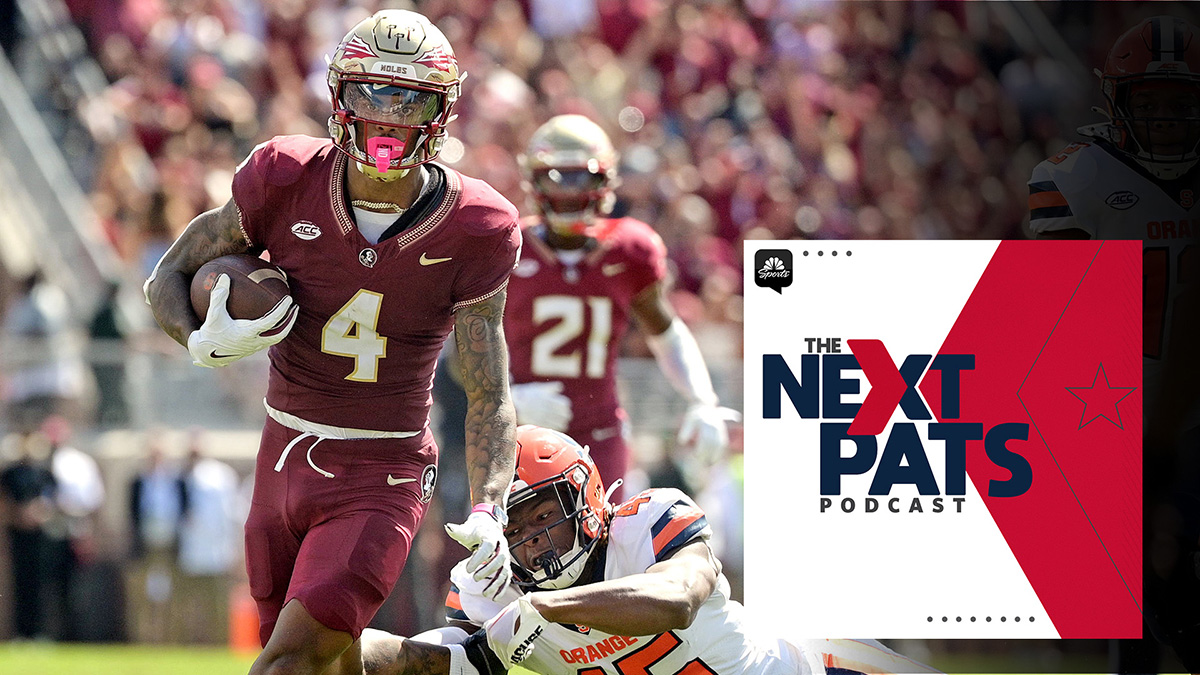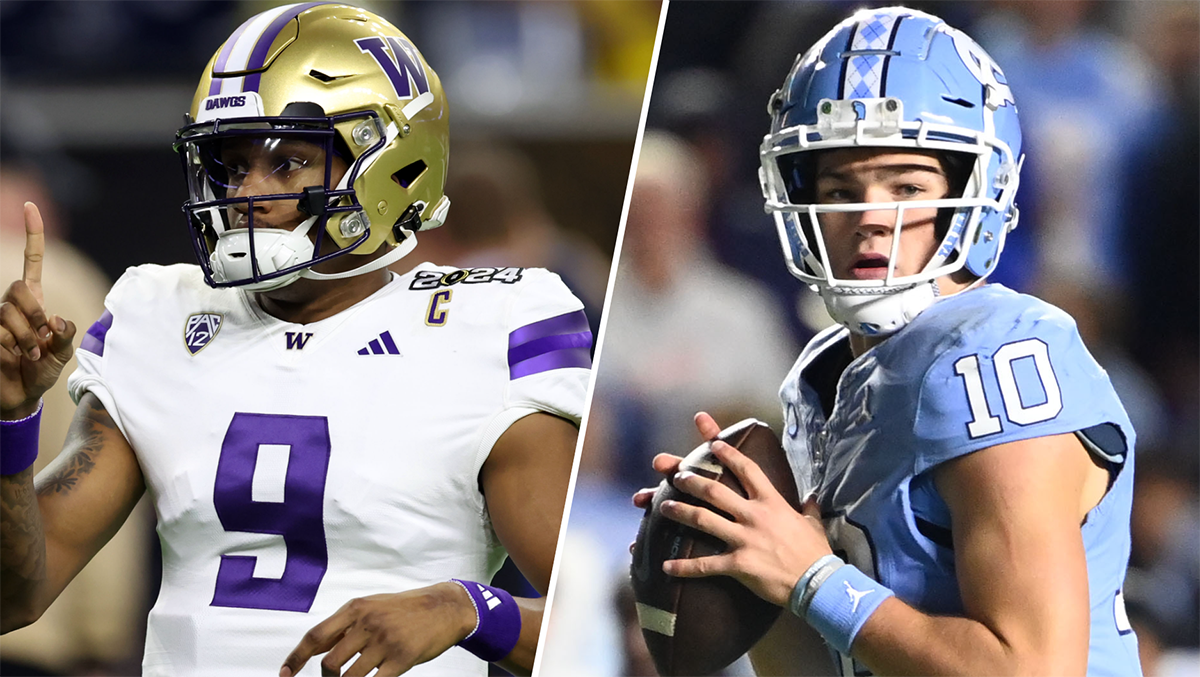Athletes enter our lives as mythical heroes, and those formative connections endure. Many New Englanders under 30, for instance, still feel like awestruck children at the sight of Tom Brady's No. 12. For 40-somethings, there's a reason Larry Bird videos provide comfort with one housebound day bleeding into the next.
As we age, athletes become our contemporaries. The first time one of them hits it big, we experience emotions ranging from, "I'm not a kid anymore," to, "I should probably start doing something with my life."
If you were born in the 1960s, maybe it's Wayne Gretzky. For children of the '70s, it's Ken Griffey Jr. Eighties kids probably expect to watch LeBron James forever. Today's generation loves Jayson Tatum. Their respective careers start with such promise that we can't imagine them getting old, because such a fate will never befall us, either.
Then we push into our 30s and something unsettling happens: the next generation arrives.
Download the MyTeams app for the latest Patriots news and analysis
The idols of our youth retire and the replacements who once represented the future now look like us -- a little older, a little slower. With each successive season, more of them fall by the wayside, their departures another way to mark the passage of time.
Instead of reveling in eternal youth, they burn like Roman candles, sparking into bursts of color that sputter to silence. One minute Griffey is going back-to-back with his dad, his backwards cap an iconic symbol of rebellion against a sport's staid culture, the next he's a broken 40-year-old hitting .184 in his farewell season. The man we once called The Kid just turned 50, by the way.
The shocking moment for every sports fan is when there's suddenly no one left. If you were born in 1962, you held on until Jamie Moyer retired in 2012. A year later, children of 1969 winced upon Mariano Rivera calling it quits. Boston fans of a 1977 vintage were blessed to call both Brady and Zdeno Chara their own until last month, and one of the minor tragedies of a 2020 without sports, if it comes to that, is the possibility that we've seen the last of TB12 and Big Z.
Our relationship to sports changes when we're older than the competitors.
New England Patriots
I'm willing to bet most fans can name at least one athlete who shares their birth year, if not the exact day (Saints guard Tom Ackerman, baby!), but the personal connection dissolves when you look out on the field/court/ice and realize the hypothetical commonality of potentially shared experience -- "Two years ago we were probably both playing NBA 2K in our dorms!" -- no longer applies.
If this sounds like the lament of a sportswriter locked in his house and confronting his own transition from young to (transmission garbled), there's a point to these maudlin ruminations, I swear.
Last week, Colts head coach Frank Reich provided an update on the status of Adam Vinatieri. The 47-year-old future Hall of Famer is coming off a miserable season mercifully cut short by knee surgery, and he still hasn't decided whether he'll play in 2020.
Vinatieri was born in 1972, the same year that gave us Shaquille O'Neal, Chipper Jones, and Jaromir Jagr, to name three.
Among the many millions of non-famous people born that year is me. The best players of my generation aren't just retired; a handful have already reached their respective Halls of Fame, their careers reduced to highlight clips and so many bolded sports-reference pages. But whether journeymen or All-Stars, their playing days are over. Jason Varitek may as well be Birdie Tebbetts; Drew Bledsoe feels interchangeable with Jim Plunkett. They're all consigned to history.
Listen and subscribe to Tom E. Curran's Patriots Talk Podcast:
But not Vinatieri. For those who grew up playing RBI Baseball, ordering double-double-cheese-cheese-burgers-burgers-please, and running the Cosby Show/Family Ties/Cheers/Night Court gauntlet every Thursday on NBC, Vinatieri is all we've got left. He's the last tenuous link to a version of ourselves that didn't worry about mortgages, raising children, or surviving pandemics. We played pickup basketball without bothering to stretch, drank like ornate fountains, and slept until noon.
Vinatieri debuted in 1996, a little over a year after I graduated college, when people still got most of their news from the paper and the Celtics still played on SportsChannel. He played his first game on Sept. 1 in a loss to the Dolphins. Thirteen days later, I covered my first Red Sox game, a 13-5 loss vs. the White Sox. Harold Baines went 2 for 4, and now he's 61. Chicago's lineup alone featured three future managers: Robin Ventura, Ozzie Guillen, and defending World Series champ Dave Martinez. Warming in the Red Sox bullpen was a reliever named Pat Mahomes -- his much more famous son goes by Patrick and just won his first Super Bowl.
That was nearly 25 years ago, and yet Vinatieri endures. He has spent more seasons in Indianapolis (14) than New England (10), and until 2019, when he missed six extra points and converted a career-low 68 percent of his field goals, he remained a standout.
He made first-team All-Pro at age 42 and converted nearly 93 percent of his kicks at age 43. He remained over 85 percent as recently as 2018. He still managed to nail a 55-yarder last year. His success helped weekend warriors believe they could still run post patterns in the park, maybe without even shredding an Achilles.
But now Vinatieri must decide whether there's anything left in that leg. When he hangs up his cleats, he'll be taking a little piece of a whole bunch of old guys with him. And I believe I speak for us all when I say:
Please don't go. We're not ready.


